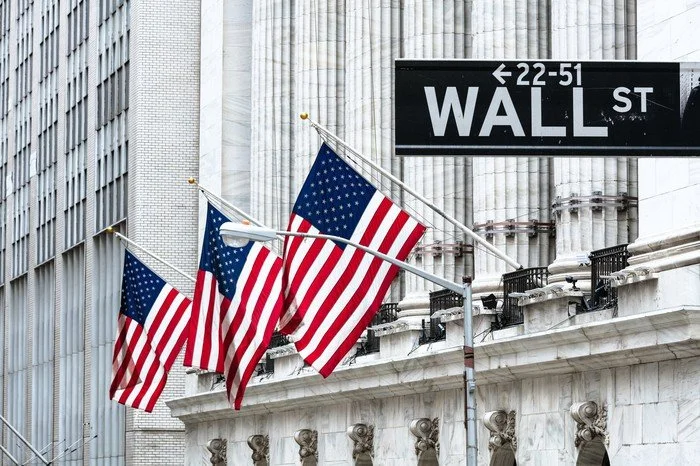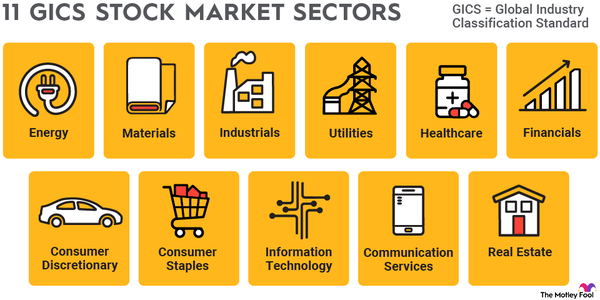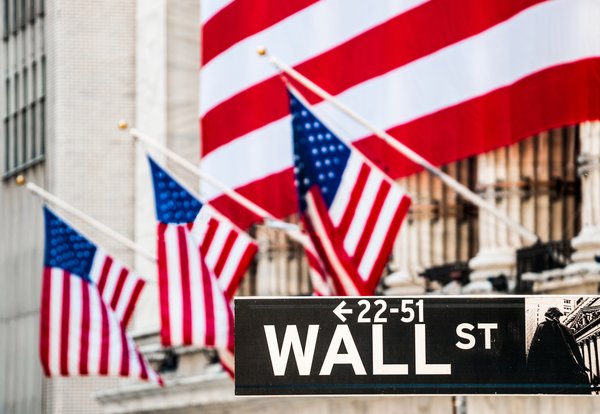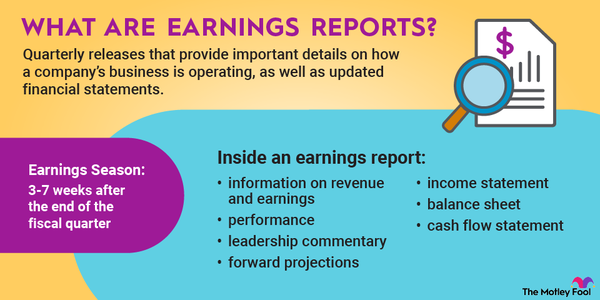Among the three major U.S. stock exchanges -- the Nasdaq Stock Exchange, New York Stock Exchange (NYSE), and over-the-counter (OTC) markets -- there are more than 10,000 publicly traded stocks available for investors. However, many of these are rather tiny, up-and-coming businesses. If you limit your search to companies with valuations of $250 million or more, the number is about 4,000. And if we look at companies with market capitalizations (the value of all of their shares combined) of $1 billion or higher, there are about 2,500 to choose from.

These are still some big numbers. But as we increase the size threshold, the fewer companies we'll find there. With that in mind, here are the biggest companies listed on the stock market, as well as the biggest private companies that choose not to list their shares to trade publicly for one reason or another.
The stock market
What is the stock market?
Stock markets facilitate the buying and selling of stocks by investors. Individual investors, corporations, and institutional investors use stock markets to buy and sell shares of publicly traded companies with one another.
Decades ago, stock markets were exclusively physical places where trading activity took place by human traders actively negotiating prices on behalf of themselves or clients. You may have seen old movies or TV shows featuring stock exchange trading floors full of screaming traders. But in the modern era, most stock trading activity takes place electronically.
Public companies
What are public companies?
Public companies, also known as publicly traded companies, are companies whose shares are available for purchase on major stock exchanges by the general public.
Publicly Traded Company
Companies become public by completing an initial public offering, or IPO, selling shares to the public to raise capital. Once its shares are public, investors can buy and sell shares from one another on the open market.
Public companies in the United States are required by the Securities and Exchange Commission (SEC) to comply with certain reporting requirements. For example, public companies are required to submit both annual and quarterly financial statements and must have a board of directors to supervise the company's management team.
Private companies
What are private companies?
Private companies are those that are not listed on a major stock exchange, with shares available to be traded by the public.
This doesn't mean that members of the public cannot invest in private companies. Quite the opposite is true. Private companies regularly raise capital from investors to help fund their growth. If you're familiar with the term venture capital, this refers to investors putting money into private companies.
Stock exchanges
Understanding stock exchanges
Stock exchanges are places (online or physical) where investors buy and sell shares of stock. There are several types of stock exchanges, including auction markets like the NYSE, where buyers and sellers are matched to complete transactions, and dealer markets like the Nasdaq, where dealers buy and sell shares to facilitate maximum liquidity.
Without stock exchanges, investors would have to either buy shares directly from the companies they want to invest in or find other investors who own shares they want to sell. Plus, stock exchanges are regulated, and companies must meet strict listing requirements, especially in the cases of the NYSE and Nasdaq.
There are several stock exchanges in the U.S. and many more internationally. Collectively, stock exchanges make up the stock market.
5 largest Nasdaq companies
Five largest Nasdaq companies list
The Nasdaq is a tech-heavy index and includes several of the world's largest companies. In fact, the five largest Nasdaq companies are the five largest companies that trade on U.S. stock exchanges.
- Apple (AAPL -0.35%) -- With a market cap of $2.9 trillion, Apple is the largest company in the stock market today. This is a business that needs no introduction since Apple is the company behind some of the most popular consumer electronics products in the world, such as the iPhone, iPad, Apple Watch, and more.
- Microsoft (MSFT 1.82%) -- Microsoft has a $2.8 trillion market cap, is a designer and manufacturer of both hardware and software, and also provides services to customers. It is the company behind the Windows operating system, the Microsoft Office suite of productivity tools, the Azure cloud infrastructure platform, and much more.
- Alphabet (GOOGL 10.22%)(GOOGL 10.22%) -- Alphabet isn't a household name itself, but its main subsidiary, Google, certainly is one. The company has a $1.7 trillion market cap and has two main divisions -- Google Services and Google Cloud. Google Services consists of the dominant internet search business, Gmail, Google Maps, Android, the Google Chrome browser, and much more. Google Cloud is one of the "big three" cloud services platforms, with Amazon's AWS and Microsoft's Azure being the other two.
- Amazon.com (AMZN 3.43%) -- Amazon has a $1.5 trillion market cap, and while it is best known for its dominant e-commerce platform, it also is the clear leader in cloud services through its Amazon Web Services (AWS) platform, which has a commanding market share lead over rivals from Microsoft and Alphabet.
- Nvidia (NVDA 6.18%) -- Nvidia is a company that literally invented the graphics processing unit (GPU), and it remains the dominant leader in the space. Its chips have use cases in the most compelling technology trends, such as data centers, autonomous vehicles, mobile gaming, and artificial intelligence, or AI.
5 largest NYSE companies
Five largest NYSE companies list
The New York Stock Exchange, or NYSE, lists thousands of companies as well, and here are the five largest as of November 2023.
- Berkshire Hathaway (BRK.A -0.76%)(BRK.B -0.69%) -- Berkshire Hathaway is a conglomerate with more than 60 subsidiary businesses, including GEICO, Duracell, Dairy Queen, Pilot Travel Centers, and dozens more. It also owns a massive portfolio of common stocks worth more than $300 billion, including a large stake in Apple.
- Eli Lilly (LLY 1.19%) -- Eli Lilly is a pharmaceutical manufacturer with a long list of products to treat a variety of conditions. Applications of the company's major drugs include treatments for diabetes, oncology, immunology, neuroscience, and more.
- Taiwan Semiconductor (TSM 1.26%) -- Taiwan Semiconductor is a chipmaker that makes components for personal computers, mobile devices, servers, data centers, and more.
- UnitedHealth Group (UNH 0.3%) -- UnitedHealth is best known for its UnitedHealthcare health insurance business, but it also owns the Optum healthcare delivery and wellness business, the Optum Insights platform for hospitals, physicians, and more, and the Optum Rx pharmacy care services business.
- Visa (V -0.23%) -- Visa operates the world's largest payment processing network, connecting merchants, customers, and their financial institutions.
5 largest OTC companies
Five largest OTC companies list
Many of the largest companies that trade on the over-the-counter (OTC) markets are foreign companies that are also listed on other major stock exchanges around the world. In fact, all of the top five are in this category.
- LVMH Moet Hennessy Louis Vuitton (LVMUY 0.82%) -- LMVH is a massive conglomerate of luxury brands. In addition to those that make up the company's name, LMVH owns brands including Tiffany & Co., Christian Dior, Fendi, Marc Jacobs, TAG Heuer, and more.
- Roche Holding AG (RHHBY 0.77%) -- Roche is a Swiss healthcare company that makes pharmaceuticals and medical diagnostics. It is the world's largest producer of cancer treatments and has a massive portfolio of pharmaceutical products in its portfolio.
- Siemens AG (SIEGY 2.23%) -- A German technology conglomerate, Siemens develops and manufactures automation solutions, infrastructure products, mobility products such as trains, healthcare solutions, and more.
- Deutsche Telekom AG (DTEGY 0.56%) -- Deutsche Telekom is a German telecommunications company and is the largest telecom in Europe. For American investors, it is most significant as the former owner of T-Mobile, and it still owns a majority (50.2%) of the company.
- Nippon Telegraph and Telephone (OTC:NTTYY) -- Headquartered in Tokyo, Japan, Nippon Telegraph and Telephone is better known as NTT. It is the fourth-largest telecom company in the world.
5 largest private companies
Five largest private companies list
Again, private companies are those whose shares don't trade on any public stock exchange. These companies may raise money from investors occasionally, but their shares are not liquid and may only be available to certain investors. As of November 2023, the five largest private companies in the United States by revenue were:
- Cargill -- Cargill is a global company that produces food service products, nature-based pharmaceuticals, risk management solutions, nutritional supplements, and more.
- Koch Industries -- A conglomerate with many subsidiaries that are in various manufacturing, chemical, energy, minerals, paper, and other industries.
- Publix Super Markets -- A large chain of supermarkets throughout the Southeastern U.S. with an especially large presence in Florida and Georgia and a total of almost 1,400 stores.
- Mars -- Mars is a food manufacturer best known for its candy products, including M&Ms, Skittles, Snickers, and more. It also owns several other popular food brands, such as Combos, and some of the most popular pet food brands, including Pedigree, Whiskas, and Nutro.
- H-E-B Grocery Company -- A supermarket chain with more than 400 locations in Texas and Mexico.
The bottom line on top stock market companies
There are literally thousands of companies listed on the U.S. stock market's various exchanges. As of November 2023, there were about 3,750 different stocks listed on the Nasdaq (including cases where the same company has more than one class of stock), about 2,600 on the NYSE, and more than 3,700 on the OTC markets. So, the companies mentioned here, although the largest, make up a tiny fraction of all publicly traded companies.













